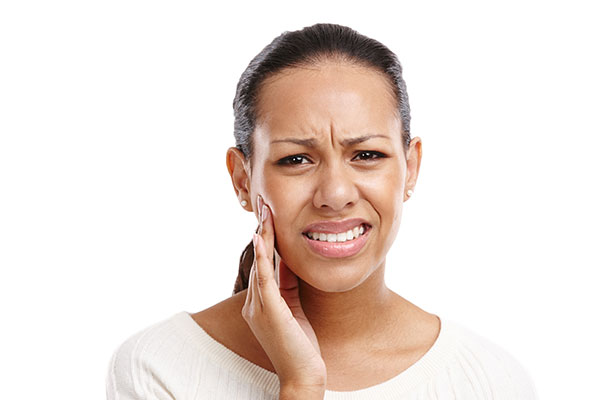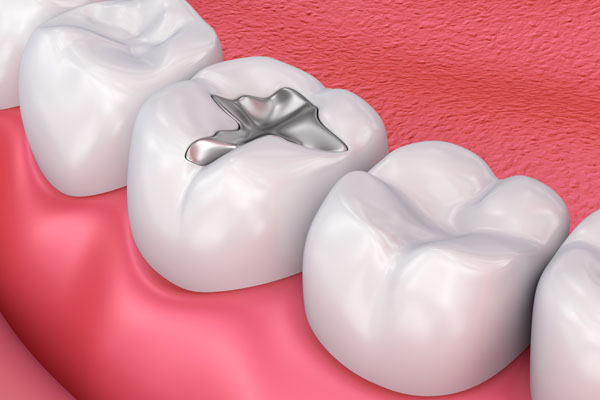When TMJ Disorder Causes Toothache

TMJ disorder can be a serious condition and is not something you should ignore. This disorder can affect people of all ages, even those who have good oral health. The effects of TMJ include pain in the jaw that can radiate to other parts of the face. If you do not address these symptoms, you could start having headaches. Eventually, this condition can affect your daily routine and quality of life. It is important to understand more about TMJ.
An overview of TMJ disorder
From the jaw to the skull is a crucial joint called the temporomandibular joint. It is like a sliding hinge that plays a key role in the movement of the mouth. When a person speaks, eats, laughs, or yawns, this joint is in action. Under normal conditions, the joint does its job well, and the person should feel no discomfort in the area.
However, various factors can make these actions painful. When there is pain in this joint, TMJ disorder is the likely condition. Sometimes, this pain may be fleeting and go away with minor treatment. But some people experience debilitating pain that affects even routine tasks. In these cases, the dentist can help to relieve the symptoms and correct the issues.
Causes of TMJ
One of the challenges of treating and preventing TMJ disorder is that it can be difficult to identify what leads to it. The bones that work with the joints are covered in cartilage and have disks in between them. These aid in the movement of the joint. Sometimes, the disks can slip out of place or deteriorate, which causes extreme pain. Arthritis can contribute to the eroding of the disk and cartilage. Also, an injury to the joint from a hard blow can cause the disorder.
Consequences
Having TMJ disorder can affect a person’s oral health and overall wellness. The most common symptom is pain in the jaw. This pain is most evident when the mouth is in use, but it can be persistent at all times. The jaw can be tender to the touch as well. Some people feel an aching pain in and around the ear. The join may even lock, making it hard to open and close the mouth.
Effects on headaches
Another issue that TMJ disorder can cause is a headache. The muscles surrounding the joint run along the jaw and up to the cheeks. When there is pain, it can radiate to the top and sides of the head. The jaw muscles may feel tight, and the person may even hear a clicking noise in the jaw. The headaches may not go away without treatment.
Treating TMJ-caused headaches
Taking over-the-counter pain medication can relieve these headaches. If this does not help, the dentist can prescribe something stronger. Putting an ice pack on the jaw or area of the head that hurts can also provide comfort. The dentist can also walk the patient through stretching exercises of the jaw to improve the range of motion.
Muscle bands and tooth pain
Taut bands develop when they are overused or injured and can cause pain to other parts of the body. Jaw muscle trigger points can cause pain in the back teeth, and muscles in the temple can cause pain in the upper teeth. Chewing, teeth grinding, jaw clenching, and talking activate these muscles. The presence of trigger points is a sign of temporomandibular joint problems. Symptoms of this disorder are facial pain, ringing in the ears, and popping in the TMJ. Earache, locking in the jaw, and grating noises in the TMJ are also signs to watch out for.
TMJ disorders and bite changes
A person’s bite may change a little when there is a new filling or crown. This can affect the patient’s jaw functions. The new restorations can change the way the upper and lower teeth interact. Over time, the person regains normal bite after days or weeks. The patient must see the dentist if there is pain when chewing or biting.
The dentist can suggest relaxation techniques. Counseling can also help the patient deal with stress, which is a common trigger to teeth grinding and tooth pain. Wearing a nightguard or mouthguard can protect the teeth from wear due to jaw clenching and teeth grinding. A soft diet can lower the stress in the jaw and teeth. The dentist can also correct the person’s bite by providing orthodontic treatment.
Tooth loss can prompt the shifting or loosening of adjacent teeth. It can cause pain and increases the possibility of decay or infection. Replacing teeth can correct the bite and relieve pain. It can prevent neighboring teeth from shifting and loosening. The dentist can replace the missing teeth with bridges or dental implants.
Understand and overcome TMJ
TMJ disorder is nothing to dismiss. Be aware of the signs that you have this condition. If you have unexplained headaches, TMJ could be the culprit. The good news is that treatment is available.
Request an appointment here: https://www.newyorkdentaloffice.com or call New York Dental Office at (212) 548-3261 for an appointment in our New York office.
Check out what others are saying about our dental services on Yelp: TMJ Dentist in New York, NY.
Recent Posts
The temporomandibular joints are located on each side of the head and assist with chewing, swallowing, and speaking. TMJ pain occurs when this intricate system of muscles, bones, ligaments, and discs fails to work as efficiently as it normally would. Ailments of the TMJ region can be caused by a variety of things, including injury,…
Restorative dentistry refers to any type of dental procedure that a dentist performs to restore a damaged or missing tooth. Dental restorations can encompass several procedures that vary in terms of invasiveness, complexity, and what they can accomplish. However, the overreaching goal of all restorative procedures is to improve the health, function, and appearance of…
Dental restorations are for patients with missing, weakened, fractured, or decayed teeth. A restoration replaces or repairs missing teeth or parts of the tooth's structure. If a tooth shows signs of decay or may cause trouble later, dentists can strengthen the tooth to avoid future issues. When it comes to dental restoration, two common types…
A broken tooth is a common dental issue that can happen for many reasons, such as accidents, biting into something hard, or untreated tooth decay. Whether a dentist can save a broken tooth or needs to remove it depends on how severe the damage is and how quickly patients seek treatment. While modern dental techniques…



